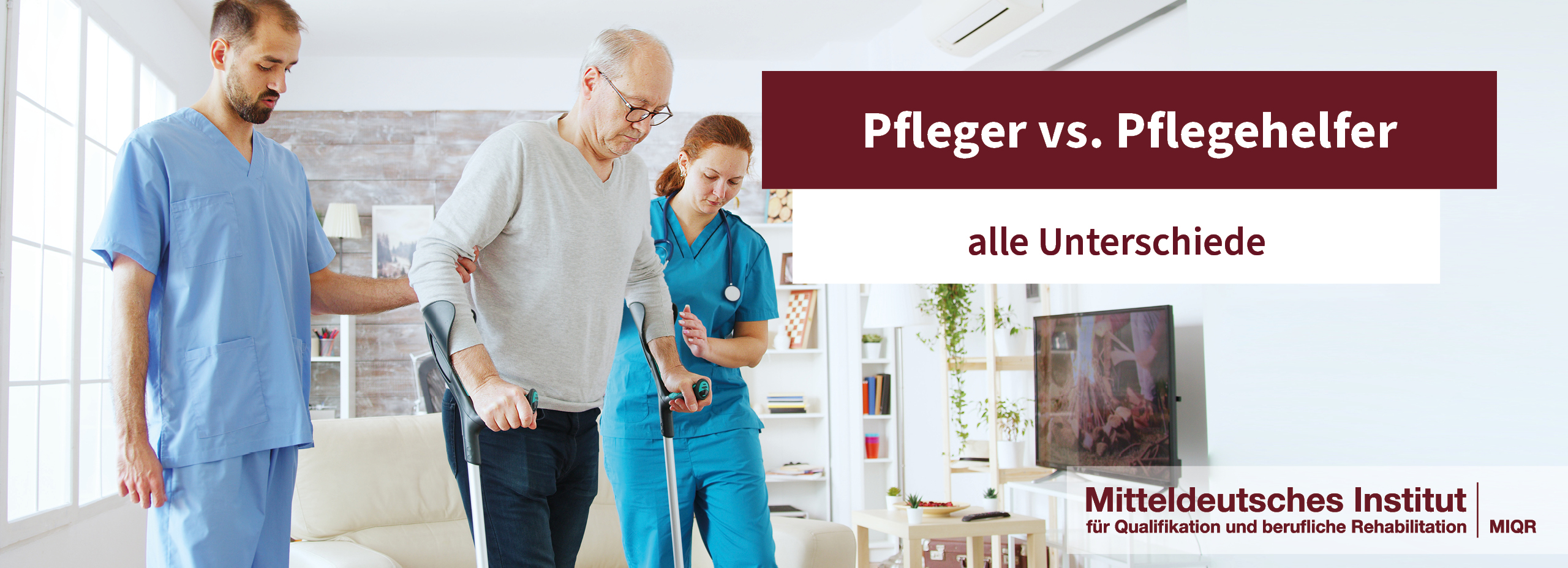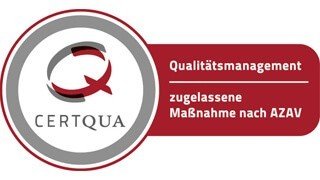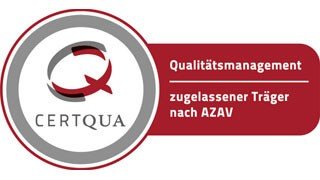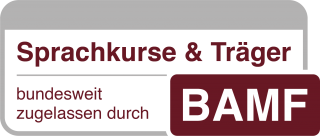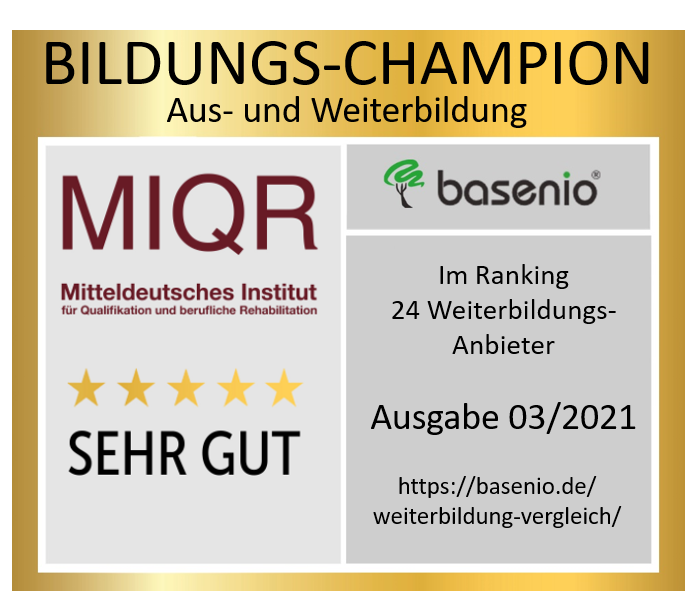Difference between nursing assistant and nursing specialist comparison | Professions | Requirements | Tasks | salary
Difference between nursing assistant and nursing specialist - tasks, requirements & more in comparison
Reading time: approx. 25 minutes | As of: September 21.09.2022, XNUMX | Author: S. Grober | Co.: S.Lenzner
Nursing specialist and nursing assistant - two professions whose importance has continued to increase over the years. But what is behind these professions that are so similar in name? We want to get to the bottom of this question and make the comparison. Read here what similarities and differences there are between the two nursing professions and the history behind them.
The history of the nursing professions in Germany
Nursing professions are an integral part of our society – but has it always been like this? Medical progress goes hand in hand with human development. Over time, different disciplines, focal points and sub-areas have emerged, which are constantly evolving. Nursing care also has far-reaching origins. In the beginning it was mainly about the care and health care of sick and weaker members of one's own family or community. As part of family care, attempts were made to improve physical and mental well-being with the help of tried and tested home remedies. But this type of care was usually very amateurish and could only be carried out as well as personal skills allowed. Then, out of a form of charity, one turned to needy people outside the inner social circle. However, it took centuries for this charitable work to develop into a professional activity. Only since about the middle of the 20th century Professions for professional care, for example:
- Caregiver
- male nurse
- pediatric nurse
- curative education nurse
In the following chapters we would like to show you a brief historical outline of nursing and illustrate how the nursing profession has developed from the beginning of human history to the present day.
history of nursing
Here you can follow the most important stations on the way to modern nursing:
Elderly care: A derivative of nursing
Our brief excursion into history shows that the development of nursing is closely intertwined with the further development of people. But what about elderly care? This is a comparatively young profession. How did it come about?
Caring for the elderly and dying has long been a family affair. This is due to the fact that in the past several generations usually lived under one roof and care for the elderly was taken on simply out of respect and a sense of responsibility. Those who no longer had any relatives were housed in an old people's or infirm home. However, the conditions there were catastrophic - which was mainly due to insufficiently trained nursing staff.
With the Second World War and the resulting sharp increase in people in need of care, however, a rethink began, which slowly led to constant improvements in the care sector after the end of the war. But even now it was still considered a female occupation. First, geriatric nurses were trained in internal training courses. From the 1950s, the first care centers were established under church management, which also served as training centers. At that time, however, there was no official geriatric nursing training. This only came about in the late 1969s.
On July 10, 1969, the first state training regulation in geriatric care in force nationwide. The duration, content and goals of the vocational training were bindingly defined here. In the next few years, the concept of geriatric nursing training was further refined, supplemented in terms of content and extended - in the 80s to two years and in the mid-90s to three years. From now on, medical treatment care was taught as a core competency.
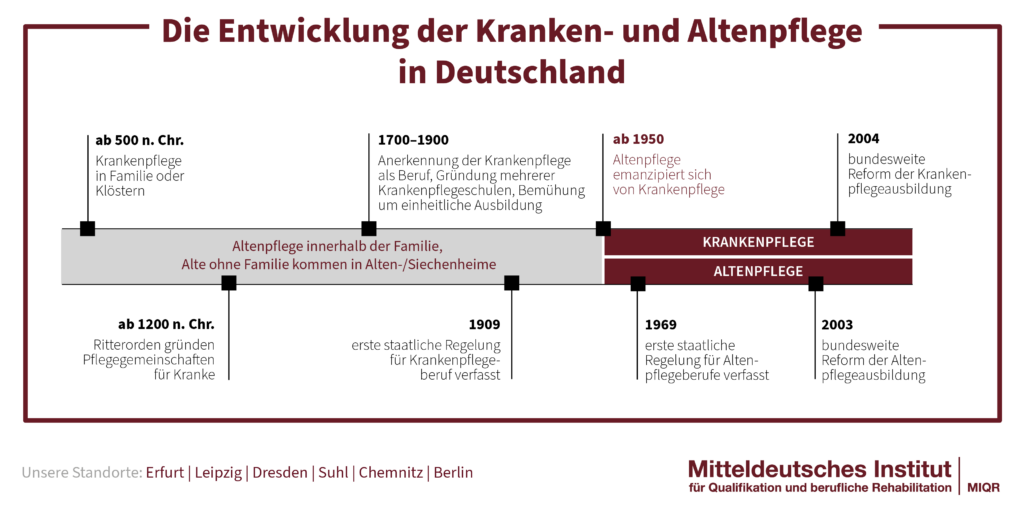
In 2003, a new geriatric care law was enacted, whereby the training for geriatric nurses was uniformly regulated nationwide. This regulation was in effect until 2020. From then on, nursing for the elderly no longer referred to an independent vocational training course, but one Elective qualification in the new general nursing education.
Distinction between care for the elderly and care for the sick
The professional groups are quite similar in their areas of activity and follow the same ethical and nursing principles. Nevertheless, there are some essential differences, which we would like to explain to you briefly and concisely here.
| Nursing | elderly care | |
|---|---|---|
| area of responsibility | - Focus is on acute and treatment care - medical assistance and postoperative care - focused on healing | - Long-term care - Improve the quality of life of seniors despite physical and mental limitations / make the old age as pleasant as possible - Social care activities |
| employment opportunities | - Hospitals - Specialist practices - health centers - Retirement homes and nursing homes - Residential homes for people with disabilities - Respite care facilities - Ambulatory care services | - Retirement homes and nursing homes - Outpatient aged care and support services - Geriatric and gerontopsychiatric departments of hospitals - Nursing and rehabilitation clinics - hospices - private households |
Conclusion: Elderly and nursing designate two different specialties in nursing, but both emerge from the same origin. Due to the standardization of nursing, uniform regulations in the care of the elderly could be formulated. This in turn made it possible to find a common theoretical training foundation, which led to the realization of general nursing training with elective qualifications in 2020.
The expansion of the nursing professions to include qualified assistants
The 1950s mark a turning point in the history of the nursing profession in Germany. As we now know, nursing will continue to be professionalized from then on. Nursing care for the elderly is emancipated from nursing care and will develop into an independent job profile with separate training in the coming years. At least until 2020, when general nursing training will come into force and nursing and nursing can be chosen as specializations.
However, 1950 brings another development in motion in the care industry: in addition to the specialist professions in nursing for the elderly and the sick, there are now also corresponding helper professions. This is also due to the turmoil of war and the growing need for care, which the nursing staff at the time could no longer cope with.
Involving auxiliary staff was intended firstly to ensure more staff quickly and secondly to provide support for the overworked nursing staff.
The specific training regulations for helper professions differed depending on whether you lived in the GDR or the FRG. Since 1951 there has been a one-year elementary nursing training course in the GDR, after which you can earn a degree as a nursing assistant. In the Federal Republic of Germany, a nursing law was passed in 1965, which regulated the training of nursing assistants nationwide. This law remained effective even after the unification of Germany. Since 2003, no new, uniform ordinance for the nursing assistant professions has been drawn up. From now on, the training of the assistant professions followed state regulations - and that to this day.
Good to know: The helper professions have not been regulated by federal law for almost 20 years. Nevertheless, they are indirectly affected by the new federal laws for nursing professions. For example, the duration of general nursing training can be shortened by completing assistant training. In addition, helper professions are also taken into account by the care commission when it comes to minimum wage increases in care. You can find out more about this in our chapter on Salary for nurses and nursing assistants.
Education: Nursing Specialist versus Nursing Assistant
In the previous chapters, many important aspects regarding the training for nursing professionals and nursing assistants or nursing assistants have already been addressed. Here we would like to summarize the most important information for you and clearly present the differences between the two training paths:
Training to become a nursing specialist
The entry requirements already make it clear which target groups the training offers are aimed at and the level of knowledge required for training. The general nursing training is aimed at socially committed people who can demonstrate good to very good previous school knowledge and would like to prepare themselves for a nursing profession with a higher level of difficulty.
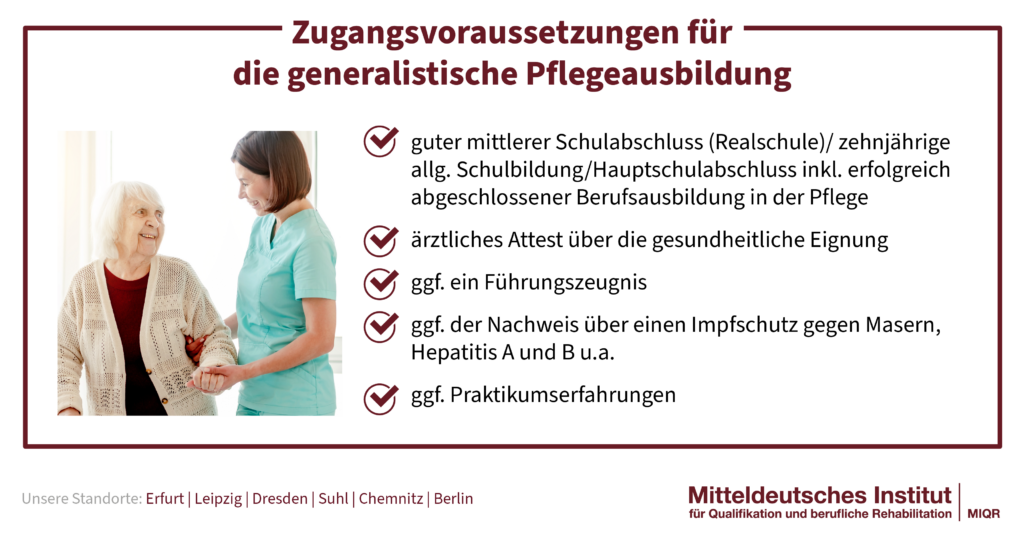
General nursing training is state-regulated vocational training. It lasts three years full-time and up to five years part-time. It is carried out in two ways: The theoretical lessons take place in the vocational schools and the practical training in a desired training center. The application is addressed to the training company, as this is the primary trainer. If the application is accepted and the training contract is validly signed, you will be enrolled and placed at an appropriate vocational school.
The training is remunerated, the amount depends on the federal state and the size of the care facility. Halfway through the training period, an intermediate examination must be taken in which the level of performance is queried. After the second year of training (full-time participation), the trainees have the opportunity to design their further training individually. You have the choice of whether you want to continue the general direction and train in general for work in the care sector or whether you want to specialize. Nursing training therefore grants three possible qualifications: as a nursing specialist or geriatric nurse or as a health and pediatric nurse.
At the end of the third year of training, the apprentices have to take a final exam.
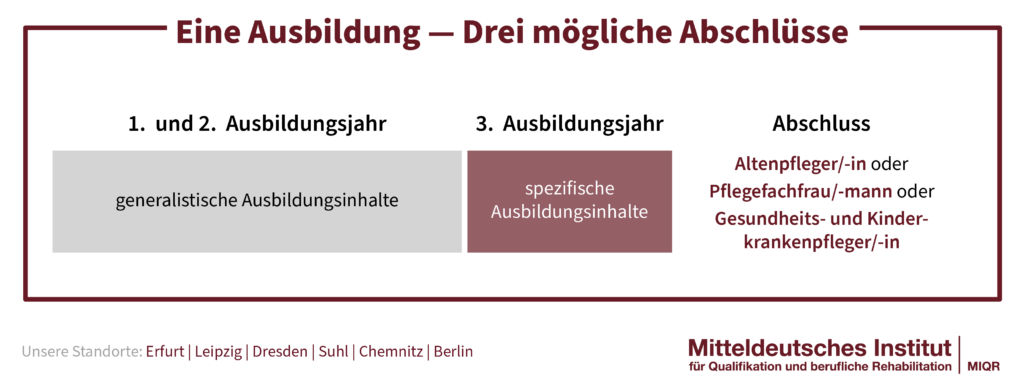
Here is an overview of the most important key data for general nursing training:
- Dual vocational training including training allowance
- 3 to 5 years of training
- 2.100 theory hours and at least 2.500 practical hours
- mandatory intermediate examination in the middle of the training period
- after 2 years of full-time training 3 options:
- Continuation of generalist training
- Specialization in geriatric care
- Specialization as a specialist nurse/specialist child nurse
- mandatory state exam
Watch out: In individual cases, the completion of the intermediate examination can be equated with the completion of helper training. This information is of particular interest if the training has to be terminated for urgent reasons. In this way, those who drop out of training at least have the chance to leave the training with a helper qualification.
Nursing assistant training
In contrast to the general nursing training, access to the helper and assistance training is basically possible for everyone. The minimum requirement is a successful secondary school leaving certificate. Those who cannot prove that they have completed secondary school have other options for qualifying for access to nursing assistant training:
This allows you to qualify for nursing assistant training:
- Evidence of training measures in which the content of the helper training was conveyed or independently acquired
- Proof of medical service time
- Proof of completion of community service, voluntary social year or federal voluntary service
- Completed training in another health profession
- Several years of professional experience in nursing
Sometimes a written entrance exam is conducted to assess prior knowledge and select suitable candidates. Those under the age of 18 may be required to provide a medical certificate. Since the training to become a nursing assistant is state-specific, the school requirements may vary depending on the state. The training concept and job title also vary from country to country, even if certain general quality standards apply.
Minimum requirements in the following points apply to nursing assistant training:
- Job description (relevant knowledge, skills and abilities)
- Duration of training (at least one year full-time)
- Scope of training (at least 700 hours of theory and 850 hours of practical training)
- Practical training (in at least two care areas/facilities)
- Admission requirements (school leaving certificate)
- Final exam (written and practical part of the exam)
Important Information: The nursing training was designed in such a way that further training and further education can build on it. What does that mean specifically? The helper and assistant training courses were prepared from 2016 to 2020 in such a way that they are recognized as an entry requirement for the three-year nursing training course - even if you don't have a high school diploma. In this way, unskilled workers with little or no educational qualifications can also qualify as nursing professionals.
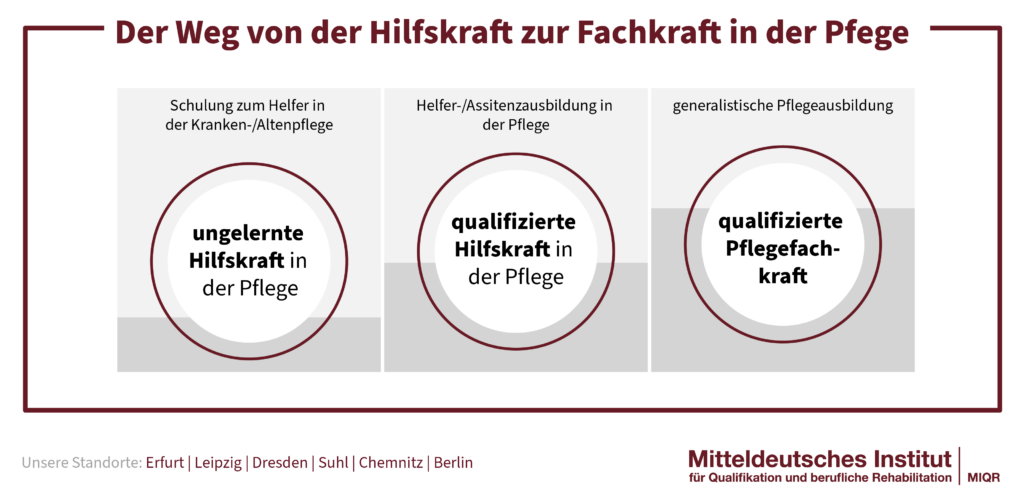
Are you looking for a suitable training opportunity to qualify for a job as a helper in the near future? Then you've come to the right place at the Central German Institute! We offer a nursing assistant course that will give you all the important knowledge and skills you need. After successful completion, you can either start immediately as a career changer in the care industry or gain access to further training in care.
Are you curious? More information about our courses can be found in the chapter "Qualification as a nursing assistant via the MIQR“. Of course you can also get personal advice from us. Submit your questions online through our Contact form or call 0800 77 89 100.
Responsibilities: Nurse versus Nursing Assistant
Nursing professionals are qualified for many areas of work through their professional training. Due to the extensive general training content, the specialists can work in both nursing and geriatric care (even in pediatric nursing). the Areas of activity of a nursing specialistt are therefore broad. Their skills are particularly in demand in unstable care situations, where, for example, acute care or around-the-clock care is required. They need to keep a close eye on the health of their patients in order to be able to immediately notice changes and react accordingly.
Perform medical treatments under medical supervision. They also help to prepare patients for diagnostic, therapeutic and surgical measures. Under certain circumstances, the specialists assist with these interventions. In addition, they are responsible for the planning, control and implementation of various maintenance measures. However, nursing professionals are not only needed in complex care situations, they also take on tasks in basic care, such as support with personal hygiene and eating.
The Responsibilities of nursing assistants are similarly diverse. They also take on nursing care measures, but primarily in basic care. Under the guidance of the nursing staff and ward managers, they provide support with patient care and the implementation of certain medical prescriptions. With regard to the responsibilities, however, distinctions are made between specialists and assistants. For example, nursing assistants are not allowed to work independently in treatment care because they are not taught any core medical skills during their training. In complex cases (e.g. in emergency and intensive care) they only have a supportive effect on the nursing staff. Normally, care assistants are only used in stable care situations. Here they interact directly with those in need of care and help to improve the quality of life of old, sick and disabled people through active care and support work.
In general, the areas of responsibility of a nursing assistant have many points of contact with those of a nursing specialist, such as nursing planning, support in organizing everyday life, end-of-life care and the implementation of life-saving measures. The main difference between the jobs is the level of responsibility and autonomy. Nursing assistants act at a comparatively lower level of requirements than nursing professionals.
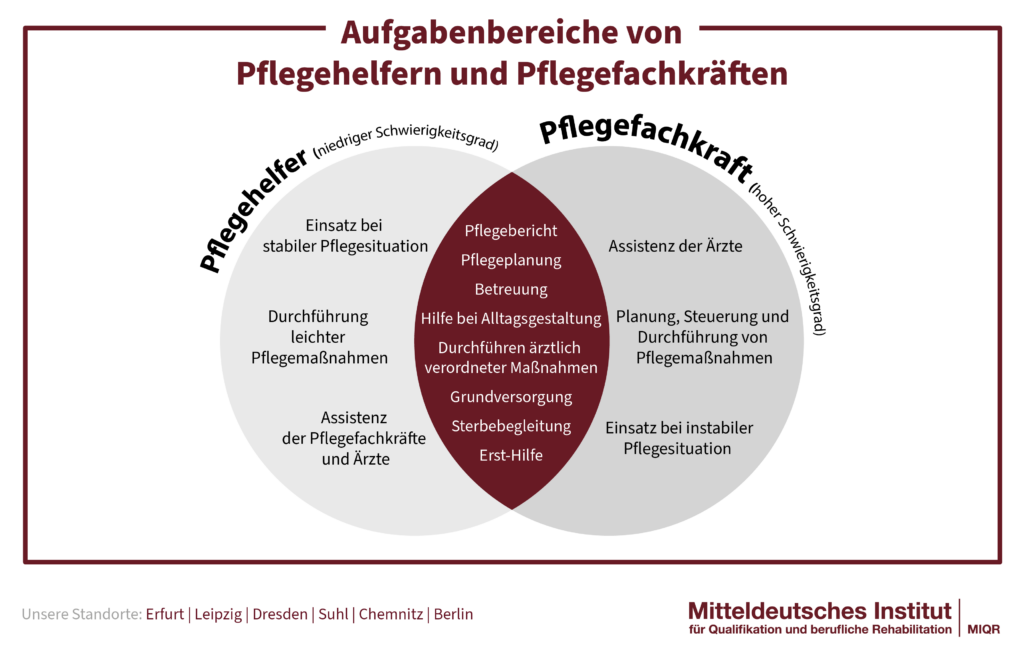
Future prospects: Nursing specialist versus nursing assistant
It doesn't matter whether you start your career as a nursing assistant or as a registered nurse, either way you have made a good decision for your professional future. Both job descriptions are currently very popular jobs with a high degree of future security. The demographic developments show this only too clearly. The current and future need for care can be determined very well, especially for geriatric care. Why? As you get older, the likelihood of being dependent on outside help increases. From the age of 65, physical or mental limitations become noticeable in many people. Many of them can then no longer cope with their everyday life without any problems and relatives are not always able to help out. The extent to which the need for care is evident in the respective age groups is regularly recorded by statistics. These exist on a large scale (for the state), but also on a small scale (for federal states or cities/regions).
In 2021, the Federal Institute for Population Research calculated how the number of people in need of care will most likely develop by 2060. The forecast shows that by 2040, around 5,37 million older people will be dependent on care services. It is expected to increase to 2060 million by 6,19. In order to meet this great demand and to be able to guarantee professional care, enough nurses and care assistants are needed. So if you decide to pursue this career path now, you can rest easy knowing you can serve in this industry for decades to come. Because the care and competence of a nurse cannot be replaced by machines.
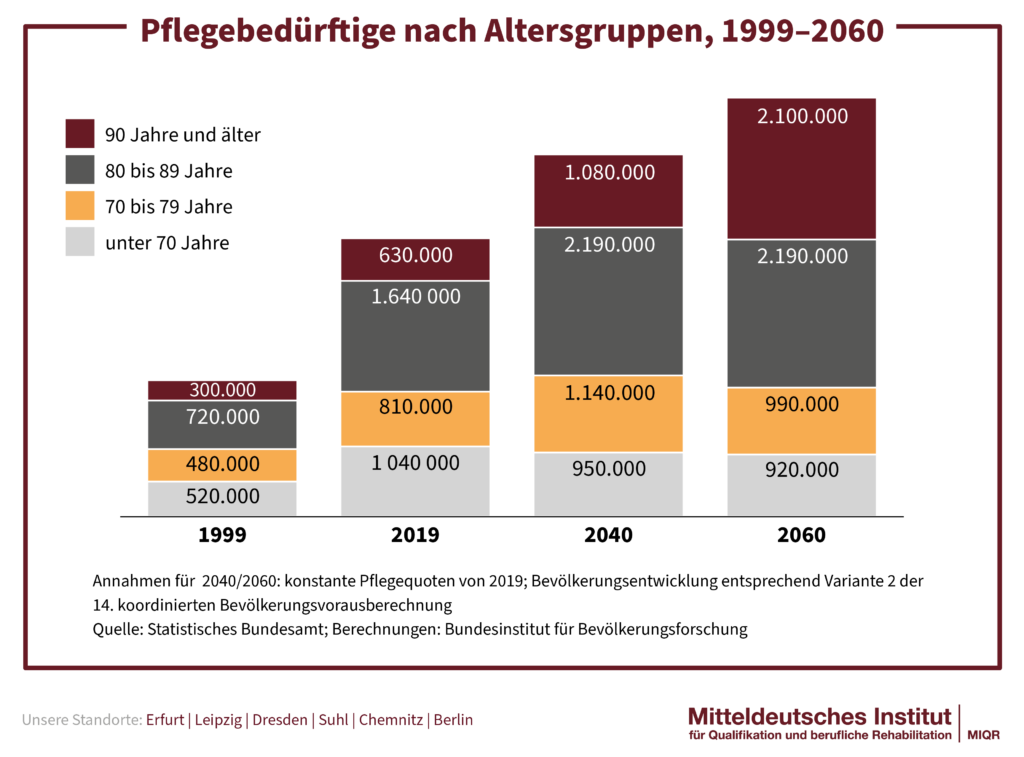
But the job as a nursing assistant or carer does not have to be the end of your career! The nursing industry offers a wide range of opportunities for advancement and additional qualifications. There are numerous further and advanced training courses through which you can expand your specialist knowledge and become a real specialist in a sub-area of care. Here we would like to give you a brief overview of the prospects open to you after qualifying as a nursing assistant or nursing specialist:
Top 10 further training courses after training as a nursing assistant:
- Communication and advice
- conflict management
- Palliative/hospice care
- treatment care
- Wound care
- pain Management
- dementia care
- Fall prevention and prevention advice
- Everyday support/care
- housekeeping and nutritional advice
Top 10 training courses after training as a nursing specialist:
- Specialist in health and social work
- Business Economist for Healthcare Management
- Ostomy, continence and wound care expert
- Specialist geriatric nurse for clinical geriatrics
- Oncology Nurse Specialist
- Specialist nurse for palliative and hospice care
- Specialist nurse for surgery/endoscopy service
- Specialist nurse for anaesthesia/intensive care
- care providers
- Practical instructor/trainer
Industries and jobs: carers versus nursing assistants
The employment opportunities for nurses and assistants are basically the same, after all they very often even work hand in hand to cover the basic needs in a nursing facility. They work where patients need their support, be it in the home environment, as support during a medical examination in the ward or in outpatient care.
- hospitals
- specialist practices
- health centers
- Homes for the elderly, nursing homes and homes for the disabled
- Residential homes for people with disabilities
- Facilities for short or long term care
- Outpatient geriatric care and support services
- nursing and rehabilitation clinics
- hospices
- private households
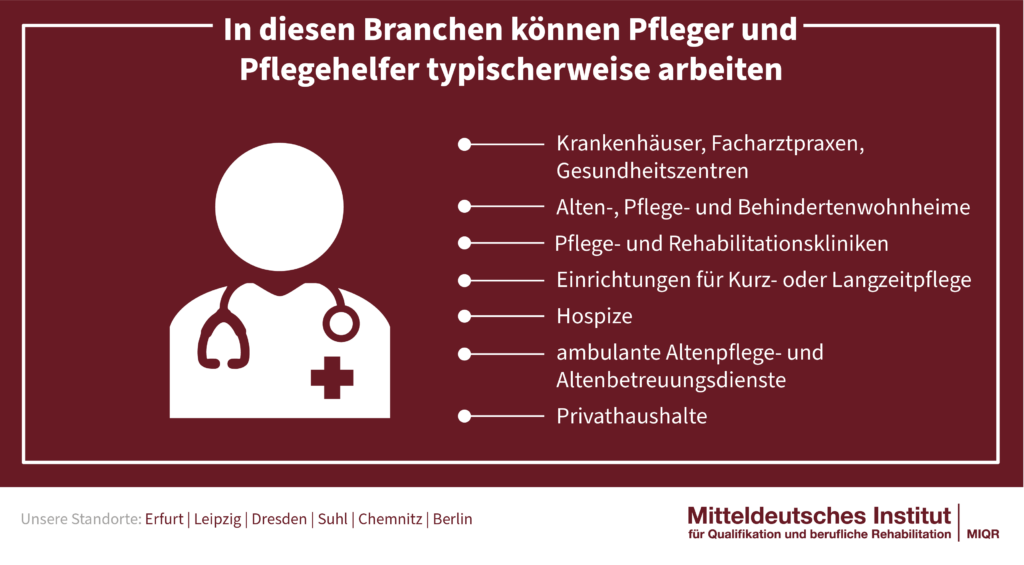
As already mentioned, the respective special forces are then divided into different areas of responsibility and departments. Nursing assistants, for example, are not allowed to take on complex cases; that is left to the specialists and doctors.
Salary: nurse versus nursing assistant
A lot has happened in terms of salary in the nursing sector. From our historical review it should have become clear that the nursing professions were not valued enough for a long time and were therefore paid too little. It took some time and some protests before efforts to raise the minimum wage appropriately were heard and implemented. In 2020, the nursing commission pushed through a gradual increase in minimum wage, from which unskilled assistants as well as qualified assistants and nursing staff should benefit. These minimum hourly wages have been in effect since April 2022:
- For unskilled nursing assistants (without training): €12,55 gross
- For qualified nursing assistants (with training): €13 gross
- For nursing staff: €15,40 gross
Further increases are currently being sought. The nursing commission recommends a new phase plan, which should take place in the following steps:
Plan for gradual minimum wage increase for nursing professions:
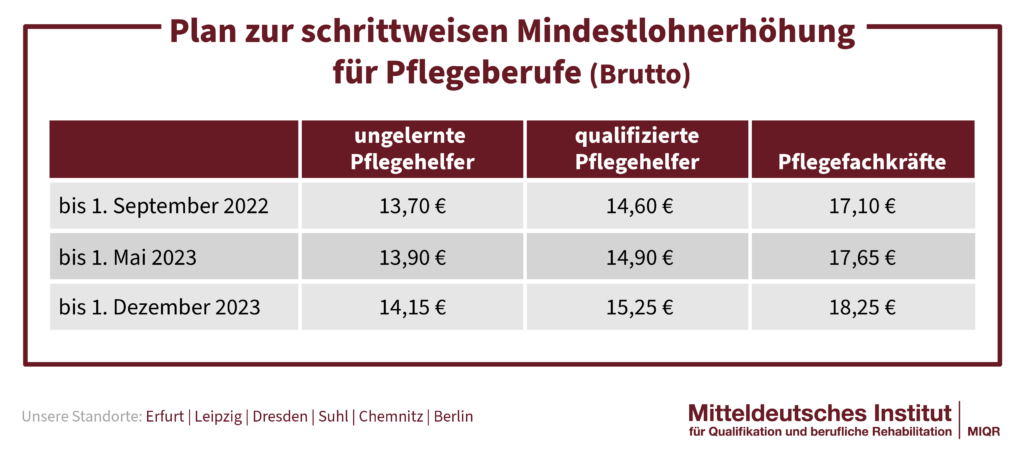
The near future will show whether these goals will be implemented as desired.
The collectively agreed minimum wage for nursing professions already ensures you a good income, regardless of whether you work as a specialist or assistant. However, the final salary is always a case-by-case decision. Many factors play a role here: Is it a private or public care facility? How big is the company? In which region or state is the job located? Do you have additional qualifications or relevant work experience? How you present yourself during the salary negotiation also influences the end result. In our guide on this topic, we give you 15 helpful tips on how to behave, whether it's at a job interview or negotiating a raise.
Qualification as a nursing assistant via the MIQR
You can't prove that you have a secondary school diploma or you weren't admitted to nursing assistant training? That's no reason to give up your dream of a career in nursing. We at the Central German Institute will be happy to help you gain a foothold in the care sector and work your way up the career ladder.
We from Central German Institute for Qualification and Vocational Rehabilitation have specialized in helping the unemployed and those looking for a job with their professional (re)orientation, so that you can quickly (re)integrate into the job market. We offer training in a wide variety of industries. This also includes the nursing department. About our course programModular training“ you can qualify as a helper in geriatric care in just a few weeks.
At the MIQR, you have the opportunity to acquire extensive specialist and application knowledge: During your qualification as a nursing assistant, you can acquire job-specific know-how and general skills that will be of advantage to you when learning and later in the application process.
Your advantages with the MIQR
We are at your disposal as a professional educational institution. You can benefit from our many years of expertise in adult education and plan your career entry into nursing with us! We'll tell you what to expect from us here!
- Presence or rather online?
We offer this training as well face-to-face event or as online training on. Each teaching model has its own advantages. Through our on-site training, you have personal contact with our teachers and also with the other course participants. In this way, all questions and possible gaps in knowledge can be addressed and clarified in an interactive conversation. By being in our institute, you also have access to our numerous additional offers, such as health sports.
The online course can be attended from any location, saving you the journey to our institute. You also have the choice of participating full-time or part-time. We grant you individual time management, so it is up to you when you learn and how many hours per week you complete. Of course, you can always contact us and request advice during your online participation.
- Practice-oriented teaching
Whether online or face-to-face, all of our teaching models have a high practical component. It is important to us that you can really internalize the theoretical content. Nothing helps better than regular exercises and working on job-related case studies. If you decide to attend the face-to-face event, we will even help you to organize a multi-week internship with an employer nearby. Here you can then experience first-hand how the day-to-day work of a nursing assistant in geriatric care works.
- Personal support from specialist lecturers
During the entire training period, our competent specialist lecturers are available to you as personal contacts. You can always arrange personal consultation appointments and exchange information in a one-on-one consultation. This also works digitally for online participants. There is no time pressure here. If you have problems understanding the course content or solving a task, joint solutions will be discussed. The pace of learning can also be adjusted under certain circumstances. It is important to us that everyone graduates and can enter the working world with confidence.
- Target group-oriented course concepts
We offer our “Helper in geriatric care” course in different versions. Depending on whether you are unemployed, need special support in finding a job or would like to take part in our training as a private payer, we offer appropriate concepts. If you take our course as part of employment promotion, we will provide you with various individual aids. Here you can work on your self-confidence and appearance in the application process under professional guidance. If you would like to acquire the nursing assistant instead as a voluntary additional qualification or simply refresh your specialist knowledge, then we will classify you as a private payer. In this case, the duration of your participation will be shorter, so that you can continue your education in a targeted manner.
- Funded by various service providers
Our educational offer is funded by various cost bearers. Customers of the Federal Employment Agency or the job center can take our nursing assistant course via a education voucher To take. This means that participation is completely free of charge for you, since all further training costs are covered by this funding. Private payers can benefit from various state-specific grants and funding programs, such as the education check. In this way, they can be reimbursed for a large part of the fees.
- Opportunity for multiple degrees
If you want, you can also attend our advanced course "Everyday companion/carer according to §§ 43b, 53 b SGB XI" after the nursing assistant course. You can also acquire a nationally recognized qualification and then present yourself on the job market as a real all-round talent in nursing assistance and care!

Are you curious? If you wish, you are welcome to test our training online. Participation in our taster course is completely non-binding and free of charge.
»Participate in the free taster course “Helpers in geriatric care” now«
We would also be happy to advise you personally on our range of courses. You can now send us a request for an individual consultation or call us directly on 800 77 89 100. We look forward to hearing from you!
Nurse vs Nursing Assistant: What's the Difference?
The biggest difference between nurses and nursing assistants is the training. Nursing professionals undergo state vocational training. This is uniformly regulated nationwide, lasts three years and runs dual. Nursing assistant training, on the other hand, is not regulated nationwide; instead, each federal state follows its own concept. Although there are minimum requirements for the educational measure to be recognized as qualifying training, the details differ from country to country. The nursing assistant training courses differ on these points: Duration of the training, possibility of part-time participation and which job title you acquire at the end.
Good to know: It is also country-specific whether the content of the training focuses on geriatric care or nursing. Some federal states even offer both types of training. These include Baden-Württemberg, Bavaria, Brandenburg, Hesse, North Rhine-Westphalia, Saarland, Saxony-Anhalt and Thuringia.
In everyday work, the differences between nursing professionals and nursing assistants become apparent in the areas of responsibility. Although both have the same employment opportunities, the skilled workers are given more responsibility and independence. The reason for this is that they have received more extensive training and have core medical competencies. In comparison, nursing assistants have completed basic training in order to be able to cover basic care. Nevertheless, the assistants may also take over the professional care of those in need of care. However, they are only assigned to patients whose health is relatively stable. Nurses deal with complex cases.
Of course, there are also differences in terms of salary. Nursing professionals undergo longer and more complex training than nursing assistants. As a result, you can later take on more responsibility in your day-to-day work and you will be paid a correspondingly higher amount. But that doesn't mean nurses are poorly paid. A lot has happened in this area in recent years. Healthcare is now one of the safest and most lucrative sectors for career changers!
The comparison at a glance: Nursing specialist versus nursing assistant
Finally, we have summarized and compared the most important facts about the job descriptions "caregiver" and "care assistant" for you:
| carer/nurse | nursing assistant | |
|---|---|---|
| Vocational Training | - regulated by the state - 3 years full-time or 5 years part-time - at least 2.100 theory hours and 2.500 practical hours - dual - hardened and tempered - Intermediate and final exam - 3 possible qualifications (nursing specialist, specialist nurse, specialist geriatric nurse) | - regulated by state law - at least 1 year full-time - at least 700 theory hours and 850 practical hours) - academically - unpaid - Final exam - Vocational qualification depending on the federal state (In addition to the helper training, there are also professional training courses at educational institutes that impart important professional content in a timely manner and enable lateral entry into care even without a professional qualification.) |
| Tasks | - higher level of difficulty - Basic and treatment care - Support from doctors - Care planning and report - Planning, control, implementation and guidance of care measures - Implementation of medical prescriptions - Help with everyday life - Maintenance - First aid - terminal care | - lower level of difficulty - Support for nurses and doctors - Planning and implementation of light maintenance measures - Implementation of special medical prescriptions - Primary care - Care planning and report - Help with everyday life - Maintenance - First aid - terminal care |
| Future prospects | - future-proof job - Adaptive training to update and expand expertise - Advancement training to achieve a management position | - future-proof job - Access to general nursing training - Adaptive training to update and expand expertise - Additional qualifications in the field of nursing |
| jobs | - Hospitals - Specialist practices - health centers - Retirement homes and nursing homes - Residential homes for people with disabilities - Respite care facilities - Outpatient aged care and support services - Nursing and rehabilitation clinics - hospices - private households | - Retirement and nursing homes - Residences for the elderly and day care centers - Geriatric and gerontopsychiatric departments of hospitals - Outpatient aged care and aged care services - hospices - private households |
| Salary (minimum wage since April 2022) | - After completing vocational training: €15,40 gross per hour | - without completed training: €12,55 gross per hour - with completed training: €13,20 gross per hour |
Conclusion
The history of the nursing profession was very bumpy and associated with a number of hurdles. It took the commitment of outstanding personalities to positively advance the development of the nursing profession over the centuries. We have now reached a point where the care sector is flourishing and offers socially committed people a wide range of profitable employment opportunities.
The occupations of “nursing specialist” and “nursing assistant” are among the most sought-after occupations in nursing. In our article, we took a closer look at these job profiles: from their historical origins to current developments. In summary, it can now be said that these professions are closely linked. Without the helping hands of the nursing assistants, the specialists would not be able to handle the basic care on their own. And the nursing assistants depend on professional guidance when it comes to medical care. In addition, the assistants can learn from the specialists and, if necessary, even qualify for one themselves. This is exactly what makes this industry so attractive: it basically welcomes every applicant and offers different opportunities for qualification and further development. In this way, even unskilled workers can advance to become specialists.
The Central German Institute will be happy to support you on your way to starting a career in the care sector. With us you can acquire important nursing skills in a few weeks and qualify as a helper in geriatric care. This training qualification is your ticket to the nursing field. From there you can shape your own career. No matter what your career goals are, you will definitely find the right starting point with us.
If you found this article interesting and would like to be kept informed about the Central German Institute and the latest educational offers, subscribe to our official newsletter Facebook page or follow our Instagram account.
If you have any questions about our offer or would like personal and individual advice, please send us an inquiry.




